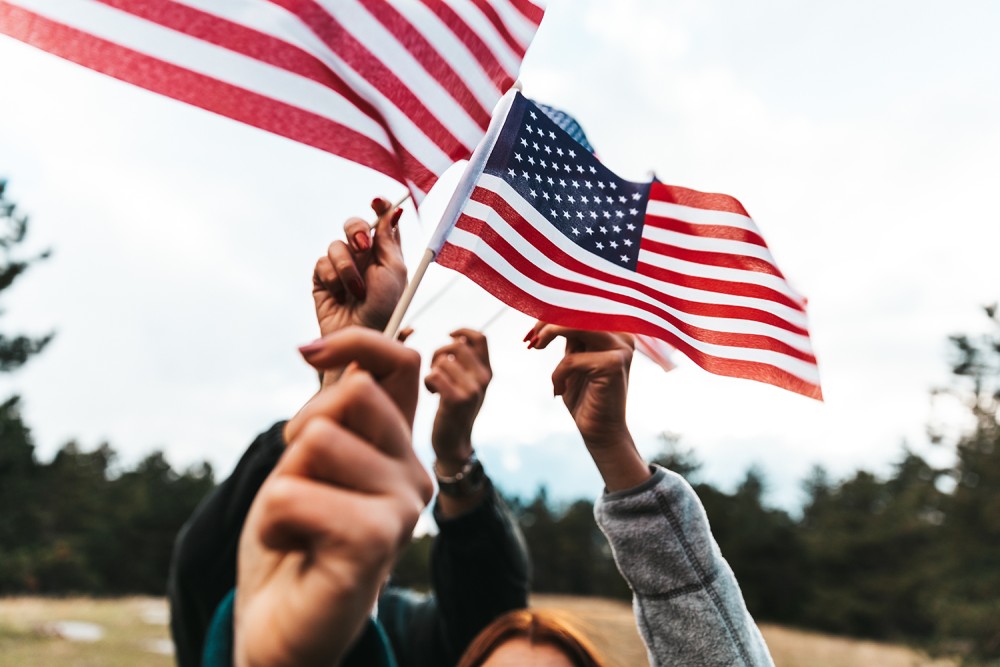The good kind of patriotism
The church is called to be a loving critic, not a national cheerleader.

Photo by LeoPatrizi / E+ / Getty
On the stucco exterior of Buchenwald concentration camp’s main gatehouse, there was a wooden sign. Recht oder Unrecht mein Vaterland, it said: My country, right or wrong. The jingoistic ring of this saying—borrowed from 19th-century English—suited the Third Reich well. An uncritical love of country held a warm appeal for the Nazis. Authoritarian governments thrive on the people’s unquestioning obedience, and uncritical patriotism usually follows.
Each year as July 4 approaches, I aim to read some piece of American literature that will balance my joy for the goodness of the United States with a reminder of its shadow side. Independence Day has a rightfully celebratory air. The all-night blitzkrieg of neighborhood fireworks isn’t for me. But the returning smell of sunscreen, the happiness of neighbors talking to each other outside, the stoking of the cookout grill for friends, Tchaikovsky’s 1812 Overture, red, white, and blue anything—these are all lovely elements of the Fourth of July.
Amid all this, I want more perspective and a richer sense of history—so I read. Two years ago it was Carol Anderson’s book on voter suppression, One Person, No Vote. Last year it was Frederick Douglass’s address from July 5, 1852, “What to the Slave Is the Fourth of July?” This year it’s portions of the diary of Daniel S. Butrick, a Presbyterian missionary who was serving the Cherokee people when President Andrew Jackson ordered them to leave their ancestral homes in Georgia, Tennessee, and North Carolina. A brief excerpt of Butrick’s explosive anger over the deadly Trail of Tears westward should make you wince:




